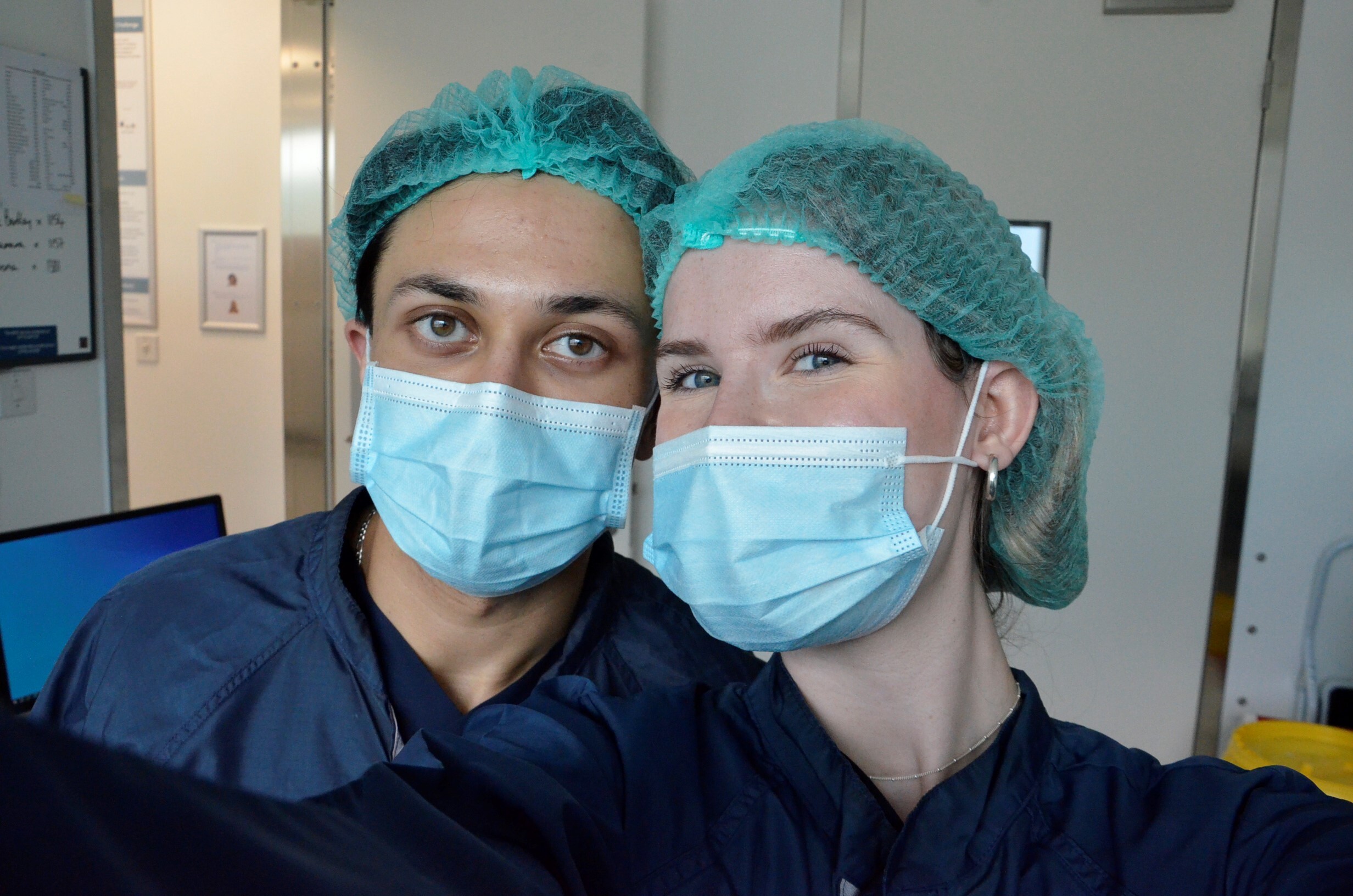GenerationResearch interns at the Mary Lyon Centre

This summer, we have taken part in the University of York’s GenerationResearch programme for the first time by supporting two undergraduate internships. Haroon Khan and Xanthia Woltjer spent 10 weeks at the Mary Lyon Centre at MRC Harwell working on research projects that tie into the work of the National Mouse Genetics Network, while also having the opportunity to gain an insight into the work of the Mary Lyon Centre and what it’s like to work as an animal technologist.
The GenerationResearch programme is run by a team of academics and professional services staff from the Department of Biology at the University of York and provides authentic paid studentship positions in a range of technical and research projects, using a process that allows a focus on students from underrepresented backgrounds. Since the first studentships in 2021, the project has already grown beyond York, with students across Yorkshire eligible to apply. In 2023, this involved 360 applications with 35 students from the Universities of York, Leeds, Sheffield, Bradford, and Hull being successfully accepted into opportunities spread around the UK and even overseas! The successful students represented many different STEM disciplines, including medicine, physics, chemistry, engineering, and biology, allowing exciting interdisciplinary experiences. This year, the Network and the Mary Lyon Centre joined the programme to host two projects.
Haroon’s project involved developing a model of weight gain trajectory in mice. Just as new parents track their baby’s weight during infancy to ensure that they’re growing as they should, weight gain in mice is a critical early indicator of health and welfare. By combining new measurements, taken during his time with us, with previously collected data, Haroon was able to create male and female percentile curves onto which he could plot an individual’s weight gain trajectory. Haroon has now returned to his third year at the University of Leeds, where he is studying Genetics.
Haroon: “Alongside our individual projects, we regularly had the opportunity to visit the different wards and teams within the Mary Lyon Centre. I was thrilled to gain an insight into the work they carry out. I found microinjection particularly interesting since it involves such fine detail and really brings to life the content we study at university!”
Xanthia’s project focused on calculating the gestational period of mice with accuracy in order to better define the perinatal period. To do this, Xanthia set up mice in special cages where their behaviour could be recorded and analysed, so that she could study mating and littering behaviours. Consistent with previous literature, she found that the mice had an 18.5-day gestation period and that both mating and littering primarily take place overnight. Xanthia has now returned to her third year at the University of York, where she is studying Biology.
The use of home cage monitoring systems allows for in-depth automated analysis of the various behaviours associated with mating or birth, which will help us fill the current knowledge gap around early life stages. Indeed, both projects tie in with the aims of the Network’s Congenital Anomalies and MURIDAE Clusters as both have an interest in improved understanding of early life and improved capacity for detection of the earliest signs of disease.
Xanthia: “I really enjoyed my internship experience at the MLC and am beyond grateful for this opportunity. Not only did I gain hands-on experience with a personal project; I also learned what real dynamic research looks like. I was so excited to see methods from research papers come alive with real equipment and procedures!”
Dr. Jillian Barlow (Director of GenerationResearch): “We are so thankful that the Mary Lyon Centre and National Mouse Genetics Network supported two of our students this year and are pleased that they have made such a positive contribution to research efforts in the field of animal technology. Providing these crucial opportunities to students like Haroon and Xanthia has an enormous impact on their confidence and early development of research skills and is key in engaging our next generation of scientists.”